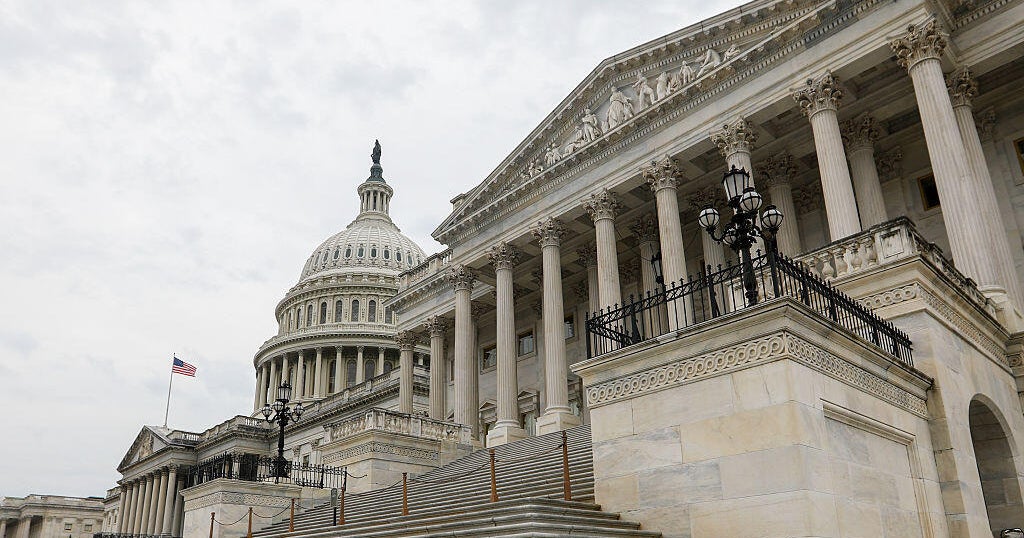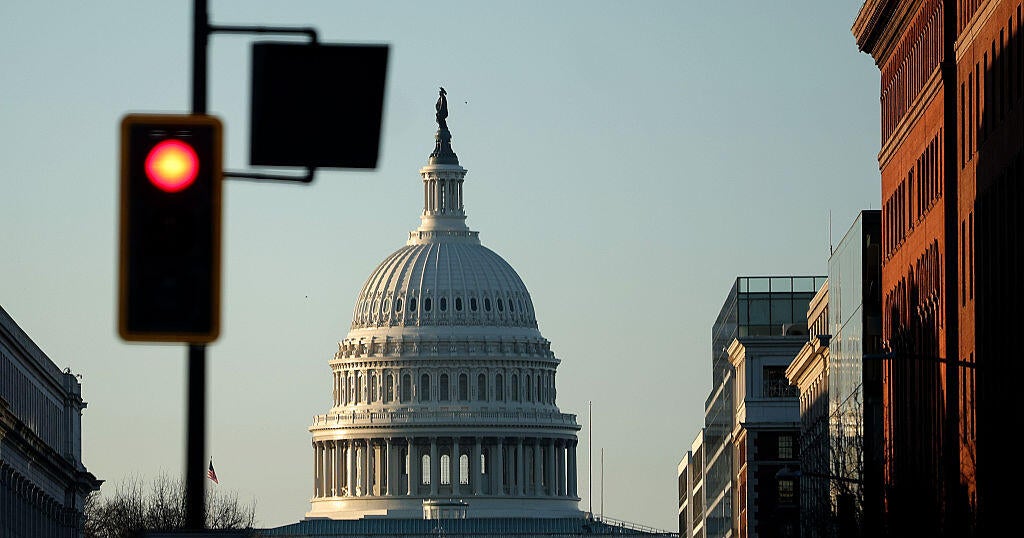Could House control flip to the Democrats? Early resignations leave GOP majority on edge
Washington — In mid-March, as the Republican majority in the House dwindled yet again, House Speaker Mike Johnson predicted that the series of resignations from frustrated GOP lawmakers had come to an end.
"I think, I hope and believe that's the end of the exits for now," the Louisiana Republican said after being caught off guard by Colorado Rep. Ken Buck's announcement that he would leave Congress on March 22.
Then, a week after Johnson's comments, Rep. Mike Gallagher of Wisconsin, a rising GOP star, announced he was also stepping down early.
After Gallagher's departure on April 19, House Republicans will control 217 seats, compared to Democrats' 213. That will mean the GOP can afford to lose just a single vote, since 216 will constitute a majority if all members are present and voting.
While special elections should bolster their ranks in the coming months, Republicans could watch their majority slip away if just a handful of their colleagues head for the exits before their terms are up.
"With such a tiny majority, all it would take is a tiny number of Republicans to decide either they want to go and leave immediately, or they have some health crisis and they cannot serve, and then Democrats would at that point possibly have an operational majority," said Matthew Green, a politics professor at Catholic University.
It would be the first time control of the House has ever flipped in the middle of a congressional term. It has happened once in the Senate, in 2001. The closest parallel in the House came in 1930, when Republicans won a slim majority. But several members died and Democrats won special elections to replace them before the 72nd Congress convened in January 1931, denying the GOP control.
However, barring something unforeseen, Green said the chances of Democrats taking control of the lower chamber mid-Congress at this point are relatively low.
"The more likely outcome is that the Republicans will just kind of limp through the rest of this Congress with a tiny, tiny majority and not do a whole lot of legislating," he said.
Molly Reynolds, a senior fellow at the Brookings Institution, a Washington think tank that maintains a database of statistics on Congress, agreed it's unlikely that control suddenly flips to Democrats. But she said mid-session departures are more consequential because of the GOP's minuscule majority.
"Even those folks who are really frustrated with serving in Congress right now, particularly in the Republican conference, even those folks don't want to jeopardize Republicans' ability to hold on to the majority," Reynolds said.
If there are more early retirements, Reynolds said she expects they will be timed strategically around special elections, which are required under the Constitution to fill House vacancies.
"Even in situations where the seat is safe for one party or the other, depending on the state it takes more or less time to actually effectuate an election to fill the seat," she said. "And that's the only way to fill a vacancy in the House."
The upcoming special elections are unlikely to jeopardize the GOP majority. Democrats are expected to hang on to a seat left vacant by Rep. Brian Higgins in New York during a special election in late April. Republicans are expected to retain three seats in the following months to fill the vacancies left by Buck; Kevin McCarthy of California, who resigned at the end of the year after he was ousted from the speakership; and Bill Johnson of Ohio, now the president of Youngstown State University. Filling those vacancies would give the GOP majority a little more cushion. (There won't be a special election to fill Gallagher's seat, because he's resigning after the deadline to trigger one.)
Nineteen other Republicans have said they're retiring, are running for another office or have lost their primary. About two dozen Democrats have made similar announcements. So far, those lawmakers haven't indicated they plan to leave their current roles before the start of a new Congress in January. Then again, neither did Buck or Gallagher when they initially announced they wouldn't seek reelection.
"The number of retirements is not unusual. What is unusual, is the number of retirements that are coming in the middle of a Congress," Green said. "It speaks in part to how deeply unhappy House Republicans are with being in Congress. They would rather just bail and not even fulfill their two-year obligation to their constituents than put up with being in the chamber any longer."
After Easter, the House will return to more dysfunction spurred by Republican infighting, which could convince others to leave early. Rep. Marjorie Taylor Greene has called for Johnson's removal from the speakership after he supported a massive spending bill to fund the government. With that threat hanging over him, Johnson will also have to navigate fractures within his party over sending more aid to Ukraine.
"If Speaker Johnson is doing his job, he is talking to those announced retirees regularly, checking in to make sure they will not leave early," Green said. "The fact that the speaker was caught off guard by some of these early retirements doesn't speak well to his ability to keep his finger on the pulse of the conference."
A spokesperson for Johnson said the speaker and House GOP leadership "are in close communication with members, retiring and not, emphasizing the critical importance of protecting and defending the House Republican majority this year and growing the majority in the 2024 elections."




